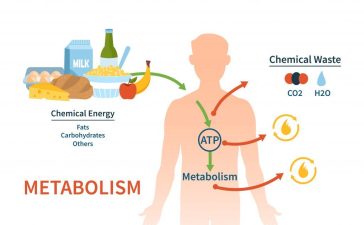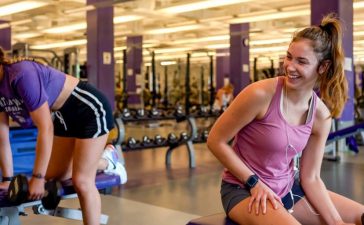
Unlocking Your Health Potential: A Comprehensive Guide to Fitness and Well-being
In today’s fast-paced world, maintaining good health and fitness has become more important than ever. A balanced approach to physical activity, nutrition, and mental wellness is key to living a vibrant and fulfilling life. Whether you are a fitness enthusiast or just beginning your wellness journey, understanding the fundamentals of health and fitness can empower you to make sustainable choices.
The Importance of Health and Fitness
Health and fitness go hand in hand. Being fit isn’t just about having a toned body; it’s about feeling strong, energized, and resilient. Regular exercise improves cardiovascular health, strengthens muscles and bones, and enhances mental well-being. According to a study published by Healthline, engaging in physical activity reduces the risk of chronic illnesses such as heart disease, diabetes, and obesity.
Fitness also plays a crucial role in mental health. Exercise triggers the release of endorphins, the body’s natural “feel-good” chemicals. This helps reduce stress, anxiety, and depression while improving mood and overall cognitive function. For those looking to improve their daily performance at work or in personal life, integrating fitness into daily routines is essential.
Building a Fitness Routine
Creating an effective fitness routine requires a balance of different types of exercises. Experts recommend including cardiovascular workouts, strength training, flexibility exercises, and mindfulness practices.
- Cardiovascular Exercise – Activities such as running, cycling, swimming, or even brisk walking elevate your heart rate and improve blood circulation. Cardiovascular fitness strengthens the heart and lungs, increases endurance, and aids in weight management.
- Strength Training – Weightlifting, resistance bands, or bodyweight exercises like push-ups and squats help build muscle mass, increase metabolism, and support joint health. Strength training is crucial for maintaining mobility and independence as we age.
- Flexibility and Mobility – Yoga, Pilates, and stretching routines enhance flexibility, reduce the risk of injury, and promote better posture. Regular stretching can also relieve tension in muscles caused by sedentary work environments.
- Mindfulness and Mental Fitness – Meditation, breathing exercises, and mindfulness techniques are equally important. They help lower stress, improve focus, and enhance overall emotional well-being.
When building your routine, consistency is key. Aim for at least 150 minutes of moderate-intensity exercise or 75 minutes of high-intensity exercise per week, as recommended by the World Health Organization.
Nutrition: Fueling Your Body
Fitness and health are incomplete without proper nutrition. Your body requires the right balance of macronutrients—proteins, carbohydrates, and fats—to function optimally. Incorporating a variety of fruits, vegetables, whole grains, lean proteins, and healthy fats ensures you get essential vitamins and minerals.

Hydration is another critical factor. Water supports digestion, nutrient absorption, and joint lubrication. Experts suggest drinking at least 8 glasses of water per day, more if you are active or live in a hot climate.
Avoiding processed foods, excessive sugar, and unhealthy fats can significantly improve energy levels and reduce the risk of chronic illnesses. For more detailed nutritional guidance, resources such as WebMD’s Nutrition Section provide evidence-based advice to help you make healthier choices.
The Role of Technology in Fitness
In recent years, technology has revolutionized the way we approach health and fitness. Wearable devices, mobile apps, and online platforms provide personalized guidance, track progress, and offer motivation. Platforms like Prod Seminars offer expert-led seminars, workshops, and online resources designed to educate individuals on best practices for health and fitness. By leveraging technology, you can stay accountable, set realistic goals, and monitor improvements over time.
Mental Health: The Often Overlooked Aspect
Physical fitness is just one side of the coin. Mental health is equally vital to overall well-being. Stress management techniques, adequate sleep, social connections, and mindfulness practices contribute to a healthy mind. Chronic stress can lead to inflammation, high blood pressure, and increased risk of mental health disorders. Integrating relaxation techniques and prioritizing mental health as part of your fitness routine can dramatically improve quality of life.
Setting Realistic Goals
One of the most common mistakes in health and fitness is setting unrealistic expectations. Many people expect rapid weight loss, muscle gain, or immediate improvements in stamina. However, true wellness is a gradual process. Setting SMART goals—Specific, Measurable, Achievable, Relevant, and Time-bound—helps maintain motivation and ensures sustainable results.
Tracking your progress with fitness apps, journals, or wearable devices can provide insights into what works and what needs adjustment. Remember, every step counts, and small consistent actions often lead to the most significant transformations.
Community and Support
A supportive community can make all the difference in your fitness journey. Surrounding yourself with like-minded individuals encourages accountability and provides motivation. Platforms like Prod Seminars foster an environment for learning and connecting with health experts and peers. Joining local fitness groups, online forums, or participating in workshops helps you stay engaged and committed.
Staying Safe and Preventing Injury
Safety should always be a priority. Incorrect exercise techniques, overtraining, or ignoring pain can lead to injury. Beginners should start with low-intensity workouts, gradually increasing intensity. Consulting with certified fitness trainers or attending professional seminars ensures proper form, reduces injury risk, and maximizes benefits.
Additionally, listening to your body is critical. Rest and recovery days are as important as active days. Sleep, stretching, and proper nutrition help muscles repair and grow stronger. Ignoring these elements can lead to burnout and setbacks.
The Lifelong Journey
Health and fitness are not destinations but lifelong journeys. Every choice you make—what you eat, how you move, how you manage stress—contributes to your overall well-being. Consistency, education, and self-compassion are essential to long-term success.
Incorporating fitness into daily life doesn’t require extreme measures. Simple habits like taking the stairs, walking during breaks, practicing mindful eating, and dedicating time for relaxation can make a noticeable difference over time.
Conclusion
Prioritizing health and fitness is an investment in yourself. With the right approach to exercise, nutrition, mental wellness, and continuous learning, anyone can achieve a higher level of well-being. Resources like Prod Seminars provide valuable insights and expert guidance to support your journey. For additional inspiration and science-backed health information, exploring top health magazines such as Healthline or Men’s Health can keep you updated on the latest trends, research, and best practices.
Remember, wellness is a personal journey, and there is no one-size-fits-all approach. Stay committed, embrace progress over perfection, and celebrate every achievement along the way. Your body and mind will thank you.






